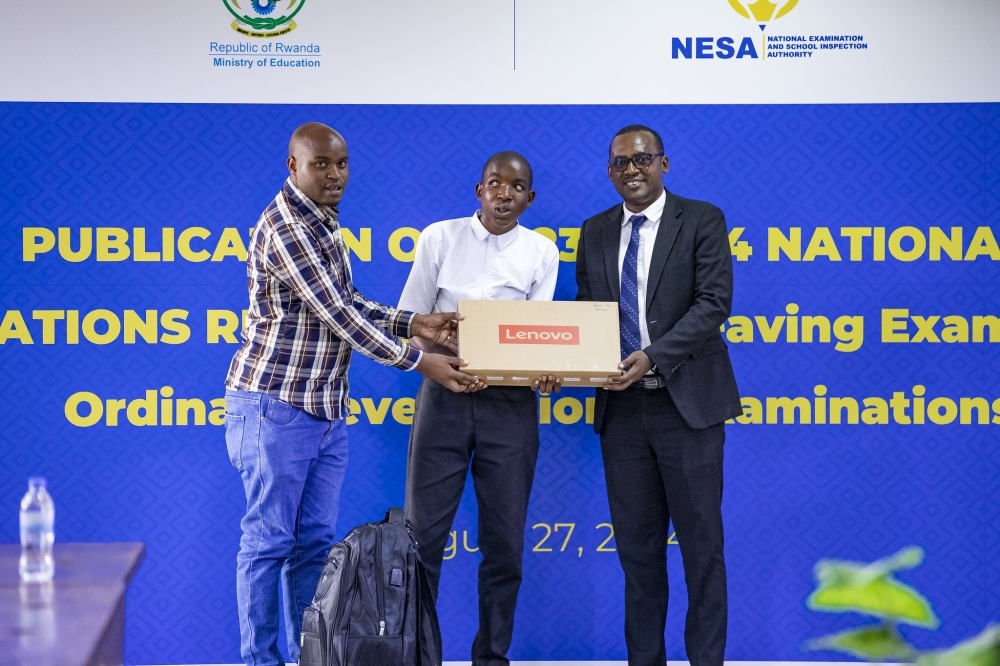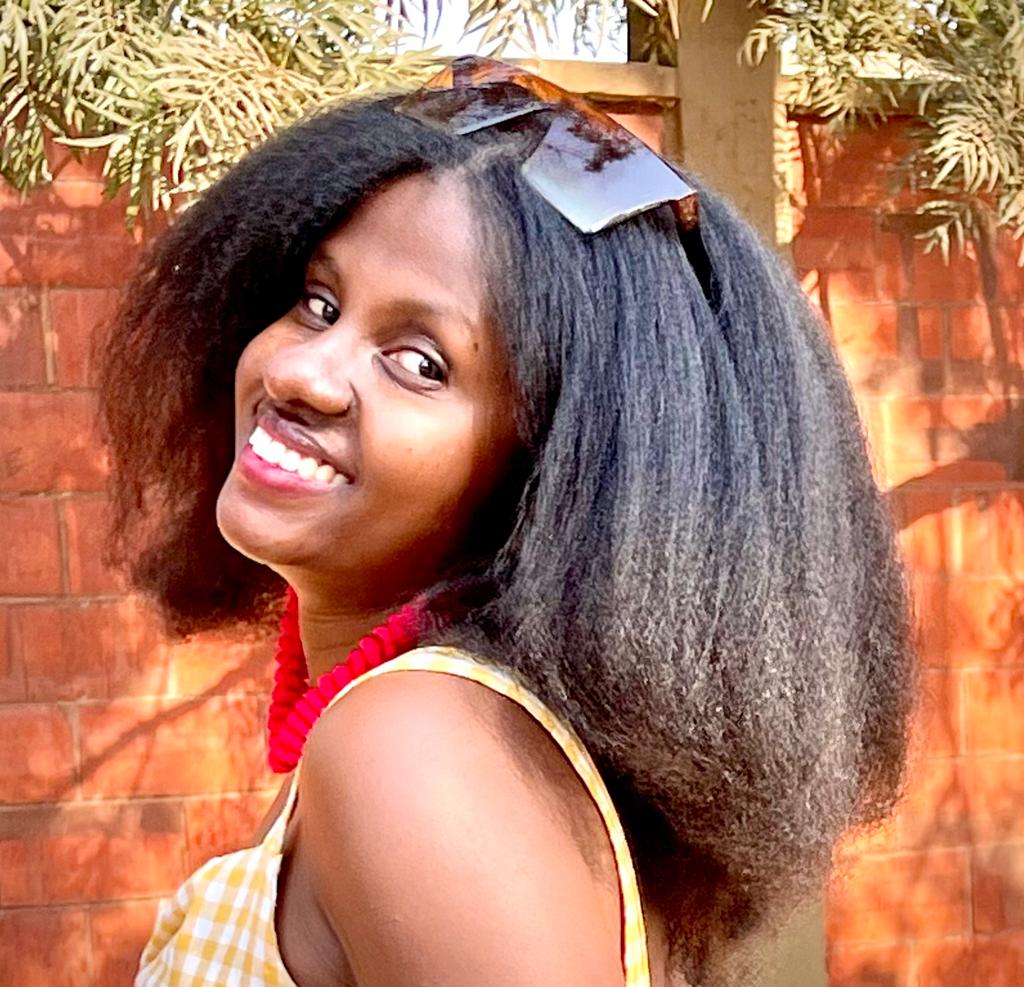

Jean de Dieu Niyonzima, a student at the Nyaruguru-based Education Institute for Blind Children in Kibeho, emerged as an inspiring example of overcoming adversity when he was announced among top performers in national examinations on August 27.
Niyonzima, who has a visual impairment, secured the fifth position in Ordinary Level national examinations, which had more than 143,000 candidates across the country. The story of the teenager who aspires to be a journalist serves as a beacon of hope for students with disabilities and highlights the need for inclusive education practices.
ALSO READ: National exams: What the top performers have said
Students with disabilities in Rwanda, like Niyonzima, face a host of challenges. These include physical barriers, such as inaccessible school infrastructure, lack of assistive devices, and social stigma. These obstacles not only hinder their academic progress but also affect their social integration and mental health.
However, the performance of Niyonzima, who studied at a special needs school, proved that with the right support, students with disabilities can excel just as their peers without disabilities.


The key question to consider is how to ensure inclusion in schools while implementing the best educational approaches for students with special needs.
ALSO READ: How Rwanda is faring in special needs education
Benson Rukabu, the National Coordinator of the non-profit Rwanda Education For All Coalition (REFAC), called for systematic, in-service training for school leaders and teachers, arguing that a holistic school development is essential an inclusive environment.
He emphasized the importance of raising awareness about the capabilities of children and youth with disabilities.
"We need to engage community leaders, religious figures, and civil society organizations to become champions for children and youth with disabilities,” Rukabu said.
ALSO READ: The crucial role of support and inclusive education for people with disabilities
He pointed to the need for peer-support arrangements that would integrate them with their non-disabled peers adding that disability-focused training for teachers, health professionals, and social workers was equally important.
In 2019, the government approved the Special Needs and Inclusive Education (SNIE) policy, a landmark move aimed at ensuring that all children, including those with disabilities, have access to equitable and quality education.
The SNIE policy goals include improving access to education for students with disabilities, enhancing support services, building the capacity of teachers in inclusive education, and promoting child-friendly approaches in schools.
ALSO READ: Making school inclusive for children living with disabilities
Emmanuel Ndayisaba, the Executive Secretary of the National Council of People with Disabilities (NCPD), noted that a shortage of specialized teachers for visually impaired and deaf learners remains one of the major issues.
He said, however, that government institutions are actively working with schools to address the challenges faced by special needs learners against the backdrop of an inclusive education policy.
Ndayisaba said that discussions are ongoing with the National Examination and School Inspection Authority (NESA) and the Rwanda Basic Education Board (REB) to create a public, upgraded institute accessible to special needs learners.
"Currently, all special needs schools in Rwanda are privately owned. We should have at least one government school in each province for special needs students. This will enable us to train teachers in order to better serve these learners,” Ndayisaba explained.
ALSO READ: New policy to promote inclusion for students with disabilities in TVET schools
He added that ongoing teacher training programmes would eventually result in all educators being able to support students with special needs.
Rosine Duquesne Kamagaju, the founder and Executive Director of Autisme Rwanda, a non-governmental organization that provides specialist autism education, said that the best educational approach for students with autism involves personalized support plans tailored to each student’s unique needs.
Kamagaju pointed out the importance of collaboration with specialists and the need to equip students with self-management and organizational skills to foster independence.
She also mentioned the gap in Rwanda’s educational system when it comes to training staff to work with autistic children.
The United Nations Children’s Fund (UNICEF) has lauded the government’s efforts in implementing the SNIE policy.
It notes that significant progress has been made over the past five years in increasing enrollment of students with disabilities, from 31,770 in 2017 to 40,342, and improving school accessibility from 16 per cent to 69 per cent, as well as enhancing teacher training.
Despite this progress, however, UNICEF indicates that students with disabilities are four times more likely to drop out compared to their peers without disabilities.
To address this, UN agency recommends the provision of affordable assistive devices in schools as which many families currently cannot afford to buy them for the students.
Improving school accessibility is another priority as UNICEF stressed the need to ensure that all school environments are accessible, including classrooms, pathways, and toilets.
Additionally, there is a need for further teacher training, not just in inclusive education methodologies but also in specialized skills like braille, sign language, and inclusive ICT.
ALSO READ: Mass production of school textbooks in braille will promote inclusive education
Blaise Shyirambere, the Disability Technical Specialist at Save the Children International Rwanda, commended the government for committing to children’s rights with disabilities through international treaties and policies like the Special Needs and Inclusive Education Policy.
However, Shyirambere pointed out that the main challenge remains insufficient public and private investment in implementing these policies.
He said the government and partners should focus on funding key areas, such as inclusive education programs, early intervention, curriculum adaptation, and professional development.


